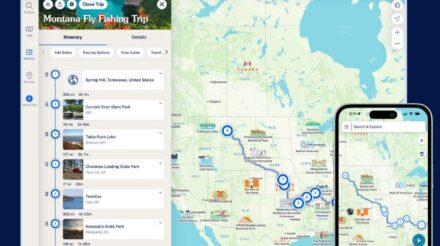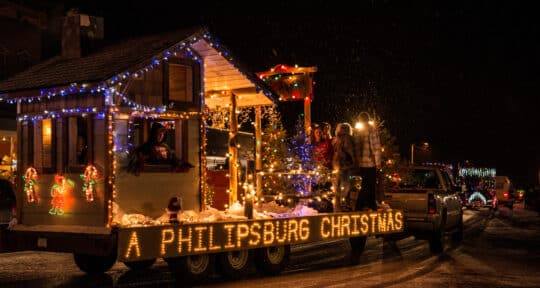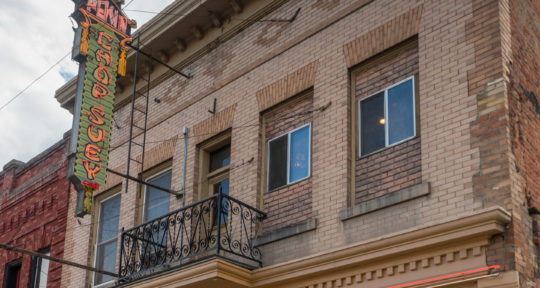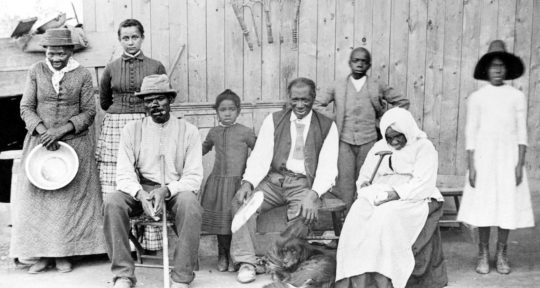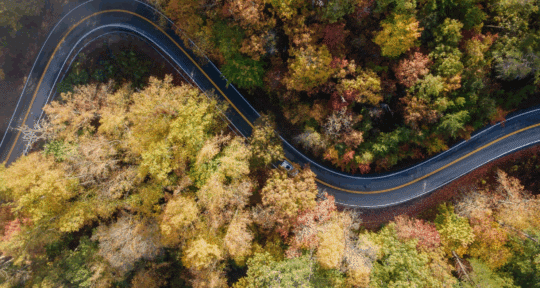When mountains awash in shades of oranges, tans, and red rose on the desert’s horizon, I almost didn’t believe it. Texas is known for many things, but mountains are not one of them. But there they were, the mountain ranges of Big Bend National Park, an alien site for a girl who grew up on the plains of North Texas.
I was bound for Terlingua, a West Texas town with 58 permanent residents located 12 miles from the Mexican border.
Terlingua began as a small Mexican town on Terlingua Creek. The name evolved from the Spanish phrase tres lenguas (“three tongues”). In the 1800s, mercury-ore, or quicksilver, turned Terlingua into a mining camp and then a town, thanks to production by the Chisos Mining Company and the Marfa and Mariposa Mining Company.
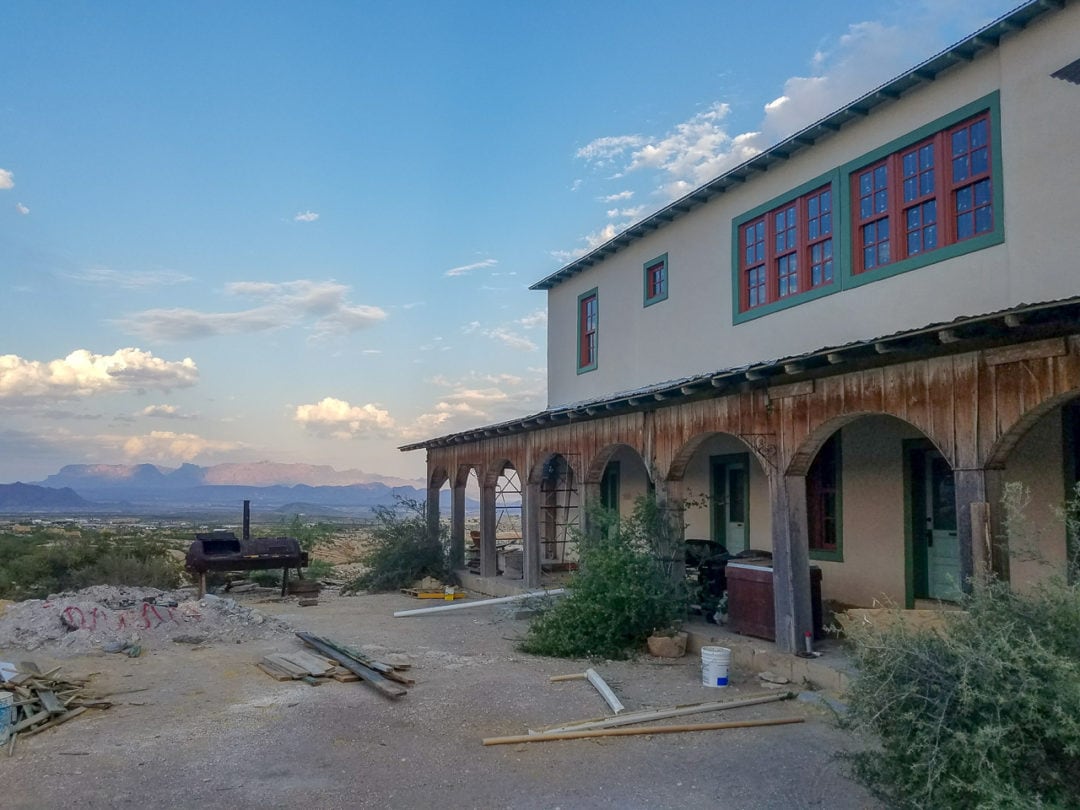
By 1922, Terlingua produced 40 percent of the mined quicksilver in the U.S. During its heyday, Terlingua had a population of 1,000 people—a mix of Mexicans and Anglos—but in the 1930s, production declined, and by the 1940s, Terlingua was a certified ghost town. It survives to this day on tourism from Big Bend National Park and a yearly International Chili Championship.
Too hot for clothes
The combined draw of ghost towns and mountains in Texas confirmed my decision to embark on the 8.5-hour drive from Dallas to a town suffering from 110-degree heat.
Upon arriving in Terlingua, I pulled up to one of the town’s modern homes, decorated in Miller Lite memorabilia. Seventy-year-old Ed Sullivan exited his house in shorts and a t-shirt. I’d found Ed through Couchsurfing; he had free Wi-Fi, a blow-up mattress in a separate room, and was willing to show me around town.
Drawn by Big Bend, the silence, solitude, sunrises, and sunsets, Ed moved to Terlingua from Austin, becoming easily integrated in the community. Terlingua parties, “planned and impromptu,” were another draw for Ed, and perhaps this was why he’d added a stripper pole to his cobalt blue shower. I’d soon learn that nude parties in Terlingua were popular, often starting in the hot springs of the national park.
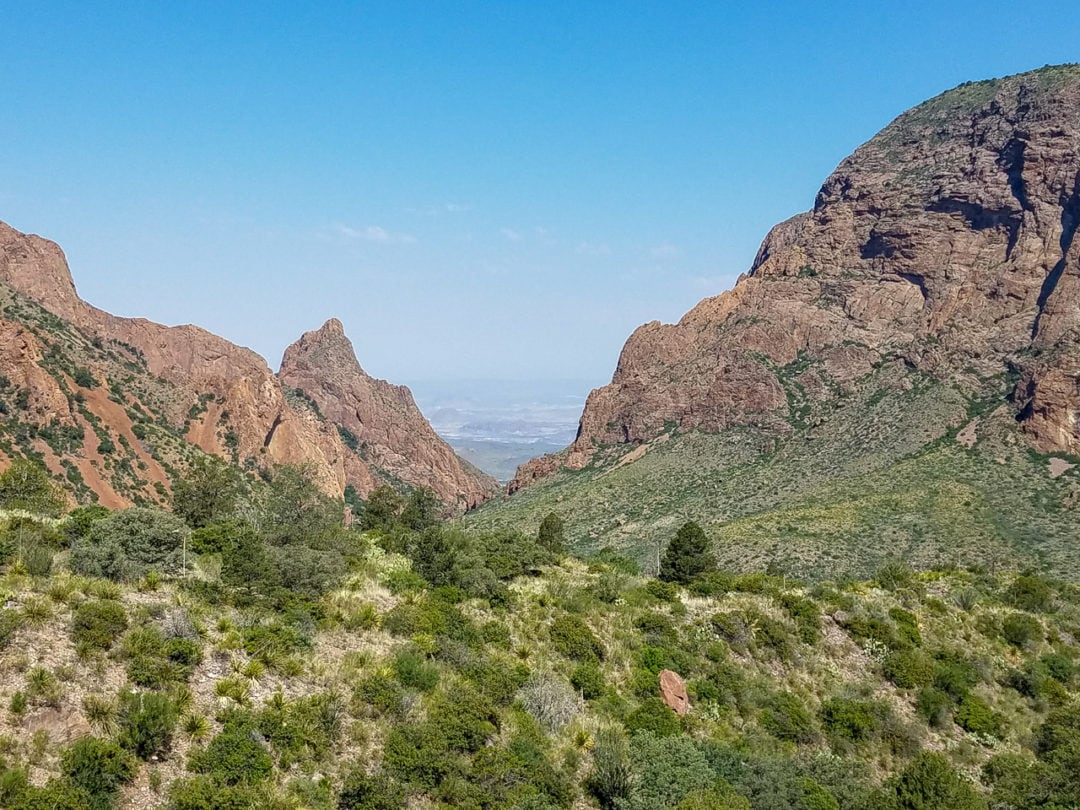
Later, I asked a local why they had so many nude parties. The response: “It’s too hot for clothes.”
My first evening in town, Ed drove us to the Terlingua Trading Company, a general store set next to the Starlight Lounge, a popular restaurant and bar styled like an old western saloon. The Terlingua Trading Company acted as the town center for social engagement, gossip, discussions, and unscheduled jam sessions as the sun was setting over the Big Bend mountains.
I asked a local why they had so many nude parties. The response: “It’s too hot for clothes.”
The locals dressed casually, most of them wearing t-shirts, pants, and high-quality Chacos-style sandals. These unofficial uniforms blurred out their diverse career backgrounds as business owners, contractors, tour guides, artists, doctors, and musicians. The locals on the porch were primarily bronzed Anglos—many over 40—weathered by the Terlinguan sun.
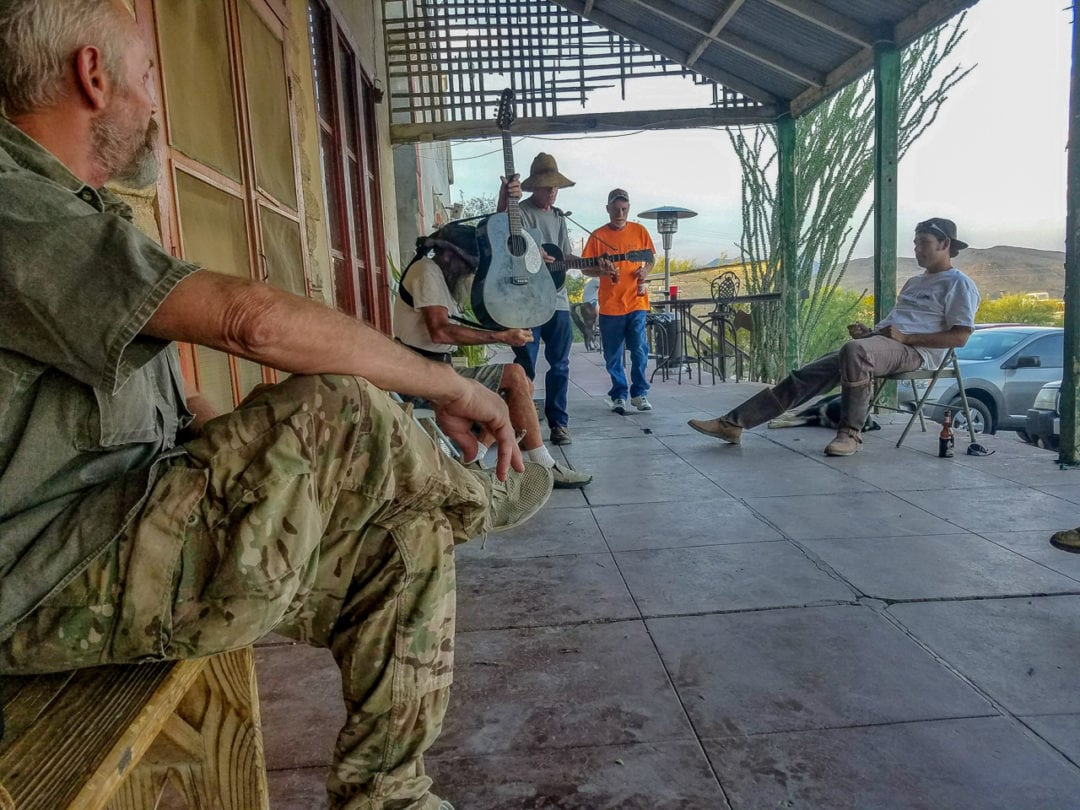
You’d think the hot, desolate desert would harden the locals’ personalities, but this was not the case. One man encouraged me to hula hoop on top of his truck and another offered to show me the national park. Most didn’t seem to be generational residents—in fact, some had just moved to Terlingua within the last month. They’d chosen to move to Terlingua and they wanted to show me why.
It seemed odd that anyone would voluntarily move to a ghost town with less than 100 residents in the middle of nowhere.
While Ed mentioned many reasons for moving to the town, there was one reason, in particular, that stood out, and my time in Terlingua proved that he’s not alone in this sentiment: “The people are so genuine, non-judgmental, accepting, and just plain good. I have not had this many friends since high school over 50 years ago.”
Nature’s freedom
The next day, Ed drove me into Big Bend National Park to experience the hot springs. The path to the springs was bordered by a cliff covered with Indigenous paintings. The Rio Grande that flows through the mountains has long been a source of life for tribes and wild animals like bears and mountain lions; it’s not a political border that separates nations. Until recently, the border was a fluid place where Terlinguans and their Mexican counterparts crossed freely to trade and socialize.
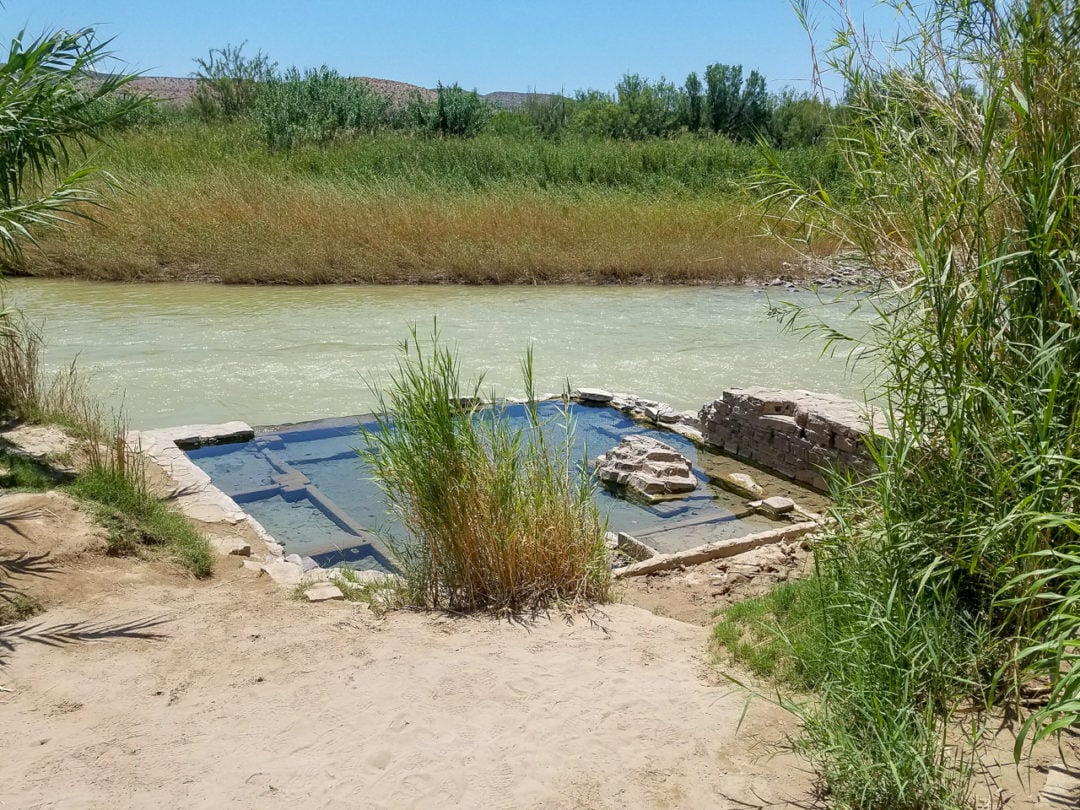
After arriving at the hot springs, Ed stripped off his shorts in true Terlinguan fashion, respectfully hiding everything underwater. I hopped between the hot springs and the Rio Grande, swimming directly between two countries that truly looked the same on either bank.
That evening we returned to the porch. As Ed relaxed, I and a few others walked through an old mining tunnel. We also explored a hotel, the Perry Mansion, which was built in 1909 by Howard E. Perry, founder of the Chisos Mining Company. As the sun set, we sang songs from decades past to the guitar played by a tourist on the porch.
I hopped between the hot springs and the Rio Grande, swimming directly between two countries that truly looked the same on either bank.
When night hit, we piled into trucks and SUVs and drove to a mine shaft to have an “inverted fireworks” show, which involved shooting fireworks down the shaft and watching as they lit a passage that never ended. Later, me, Ed, and a group of 12 locals and tourists in their 20s and 30s made our way to the High Sierra Bar & Grill to dance the night away, until someone suggested we visit the town’s birthplace: Terlingua Creek.
Ed returned to his house while the rest of us piled into cars to race off into Terlingua’s pitch black night. When we arrived at the rocky creek, the locals started to strip. Growing up, I was labeled the “good girl,” someone who was about as spontaneous as a priest. Suffice it to say, I’d never skinny-dipped. However, something about being in Terlingua made me feel a bit more confident and ready to do something I wouldn’t normally do, so I got naked, too.
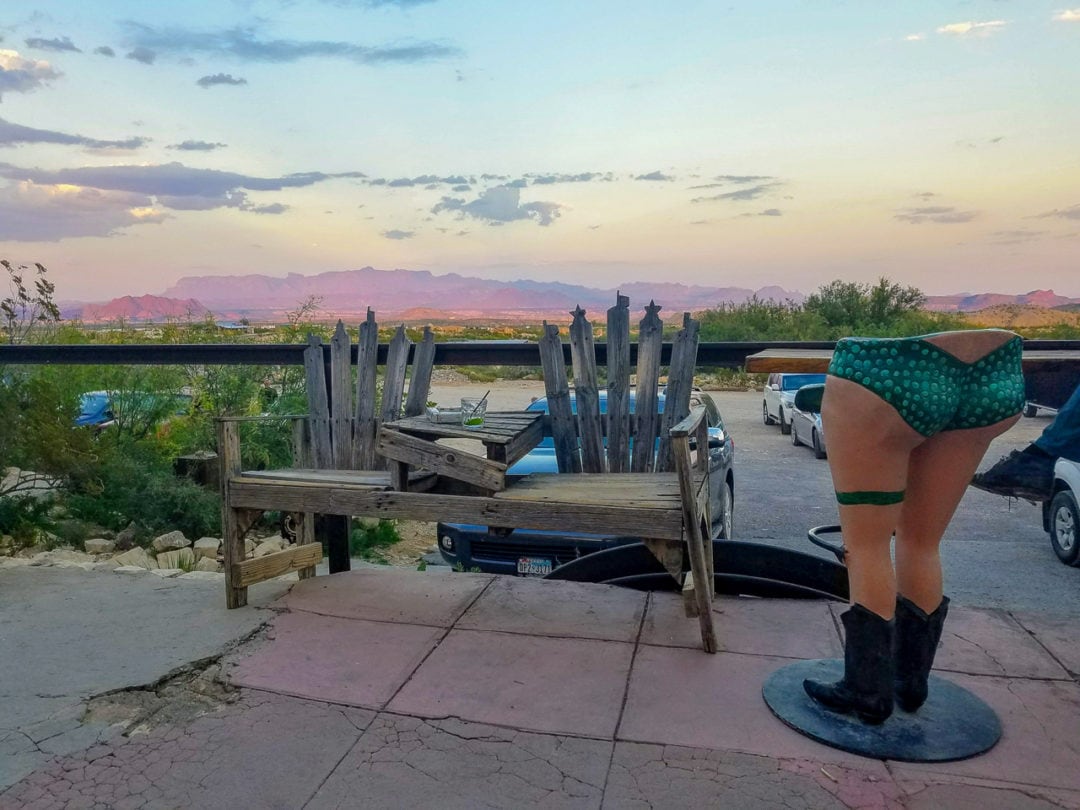
The water was chilly at first, but I forgot about it as I leaned back and saw for the first time why Terlingua is a certified Dark Sky location. While conversation continued around me, I had become lost among bright pinpoints of light that spread in all directions. For a moment, I even forgot I was skinny-dipping with strangers.
It made sense then, why, after having visited 50 states and 33 countries, Ed had ended up in Terlingua. He and the other locals I met had chosen to live in a town where the sky was endless and the environment harsh and beautiful. They lived without certain aspects of comfort—but also without the pressures of mainstream society, and there’s freedom in that.
“Terlingua is Nirvana for me,” Ed said, and it wasn’t hard to see why. Nature, freedom, and community reigns in Terlingua, giving life to a ghost town that just won’t die.

